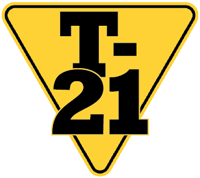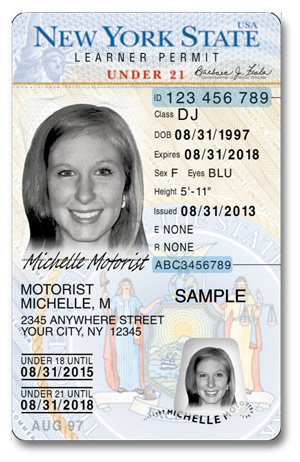Tobacco-21
 Tompkins County Legislature votes to raise the minimum legal age for purchasing tobacco products from 18 to 21, effective July 1.
Tompkins County Legislature votes to raise the minimum legal age for purchasing tobacco products from 18 to 21, effective July 1.
By a 9–5 vote, the Tompkins County Legislature on May 2, 2017, passed a local law that raises the legal age for purchasing tobacco products to 21. All products that are currently age restricted under the NYS Adolescent Tobacco Use Prevention Act (ATUPA) are also in the new local law. This includes all tobacco products, electronic cigarettes and vaping products, and smoking paraphernalia.
The law goes into effect on July 1, 2017. Staff from the Tompkins County Health Department’s Health Promotion Program will provide educational outreach to retailers and the general public leading up to and after the effective date. Click the links below for more info about T-21.
Frequently Asked Questions
Tobacco-21 in Tompkins County: What You Need to Know
Local Law No. b of 2017(PDF, 219KB): No person shall sell any tobacco product, electronic nicotine delivery system, shisha, or smoking paraphernalia to persons under the Legal Age, which is age 21 years.
What is the new law?
This law prohibits retailers from selling cigarettes, cigars, smokeless or other tobacco products, electronic cigarettes, vaping devices or supplies, or paraphernalia to anyone under age 21.
When does this law go into effect?
This law takes effect on July 1, 2017.
Why did Tompkins County pass this law?
The intent of this law is to reduce adolescent and teen access to tobacco and nicotine products. Nicotine is a highly addictive drug, and individuals who delay use of nicotine until age 21 or 25 are significantly less likely to develop a lifelong addiction to the drug. The Institute of Medicine has determined that increasing the minimum legal age for tobacco purchase will likely prevent or delay the initiation of nicotine use by adolescents and young adults, especially for teens age 15-17 years. Read more about this under About Tobacco 21.
What products does this law apply to?
The law applies to all products that are age restricted by the NYS Adolescent Tobacco Use Prevention Act (ATUPA), including but not limited to cigarettes, cigars, smokeless tobacco, shisha, e-cigarettes and vaping devices, liquid nicotine, and smoking paraphernalia.
The law does not apply to Nicotine Replacement Therapies (NRT) or other FDA-approved cessation treatments. FDA-approved nicotine gum or patches, or any other approved products are not regulated by the local law requiring a minimum legal sales age of 21.
The FDA suggests that a minor under the age of 18 speak to a healthcare professional about using NRT to quit smoking.
What is smoking paraphernalia?
The definitions section of the law(PDF, 219KB) states, “Smoking paraphernalia means any pipe, water pipe, hookah, rolling papers, or any other device, equipment, or apparatus designed for the inhalation of tobacco or Shisha.” The law does not pertain to lighters.
Will new signage be required for stores in Tompkins County?
Yes. All retailers that sell applicable products are required to post in a place highly visible to customers, a sign that complies with the Tompkins County law on informing customers of the minimum sales age for these items. The sign is available at Tompkins County Whole Health, 55 Brown Road, Ithaca, or download a letter-size PDF of the legal sign(PDF, 85KB).
How will the new legal age affect age verification?
 Retailers must verify that customers who ask for applicable products are at least 21 years old. If a customer looks like he/she is under 30 years old, retailers should ask for proof of age. Any of these documents constitutes acceptable proof of age:
Retailers must verify that customers who ask for applicable products are at least 21 years old. If a customer looks like he/she is under 30 years old, retailers should ask for proof of age. Any of these documents constitutes acceptable proof of age:
- A valid photo driver’s license or non-driver ID card issued by a state or other U.S. or Canadian government agency. New York State driver’s licenses have a new vertical format only for those under 21, clearly stating “Under 21” at the top, making it easier for retailers to identify customers who are younger than 21.
- A valid passport.
- A photo ID issued by the armed forces of the United States.
- ID cards issued by employers, schools or colleges are not acceptable forms of ID.
What are the penalties for a violation?
Any person found to be in violation of this Local Law shall be liable for a civil penalty of no less than $300 but no more than $1,000 for a first violation, and no less than $500 but no more than $1,500 for each subsequent violation. Violations of this Local Law shall be separate from and, where applicable, in addition to a violation of the Adolescent Tobacco Use Prevention Act (ATUPA).
How will this law be enforced?
It will be enforced by the Tompkins County Health Department. Compliance checks may be conducted by the Environmental Health Division of the Health Department.
What if I have questions or need more information?
Contact the Health Promotion Program of the Tompkins County Whole Health at (607) 274-6710.
About Tobacco 21
Raising the Minimum Legal Age for Purchasing Tobacco Products from 18 to 21 Years Old
 The Institute of Medicine (IOM) report provides clear evidence that raising the minimum legal age of purchase for tobacco products would result in fewer youth trying tobacco, fewer youth becoming regular tobacco users, and ultimately fewer of the long term health outcomes that result from tobacco use.
The Institute of Medicine (IOM) report provides clear evidence that raising the minimum legal age of purchase for tobacco products would result in fewer youth trying tobacco, fewer youth becoming regular tobacco users, and ultimately fewer of the long term health outcomes that result from tobacco use.
Projected outcomes from raising the tobacco purchase age to 21 (nationwide).
- The tobacco use initiation rate for youth under age 15 would decrease by about 15%, for ages 15-17 the initiation rate would decrease 25%, and for ages 18-20 it would go down a little over 15%.
- The study model projects that if the minimum age were raised today, by the time today’s teenagers were adults, there would be a 12% decrease in the prevalence of tobacco use among those adults.
- The model also projected that, looking 30 years out, raising the age now would result in approximately 223,000 fewer premature deaths, and 4.2 million fewer years of life lost among those born in the first 20 years of this century.
Also important is the role that brain development plays. We know that exposing the undeveloped adolescent brain to nicotine increases the chance that the brain will become essentially “hardwired” for nicotine. This explains why about 90% of adult smokers started before age 18. Those who wait until the brain is fully developed, about age 25, are unlikely to become long term users. The longer use is delayed, the lower is the likelihood of lifetime addiction.
Additional Information